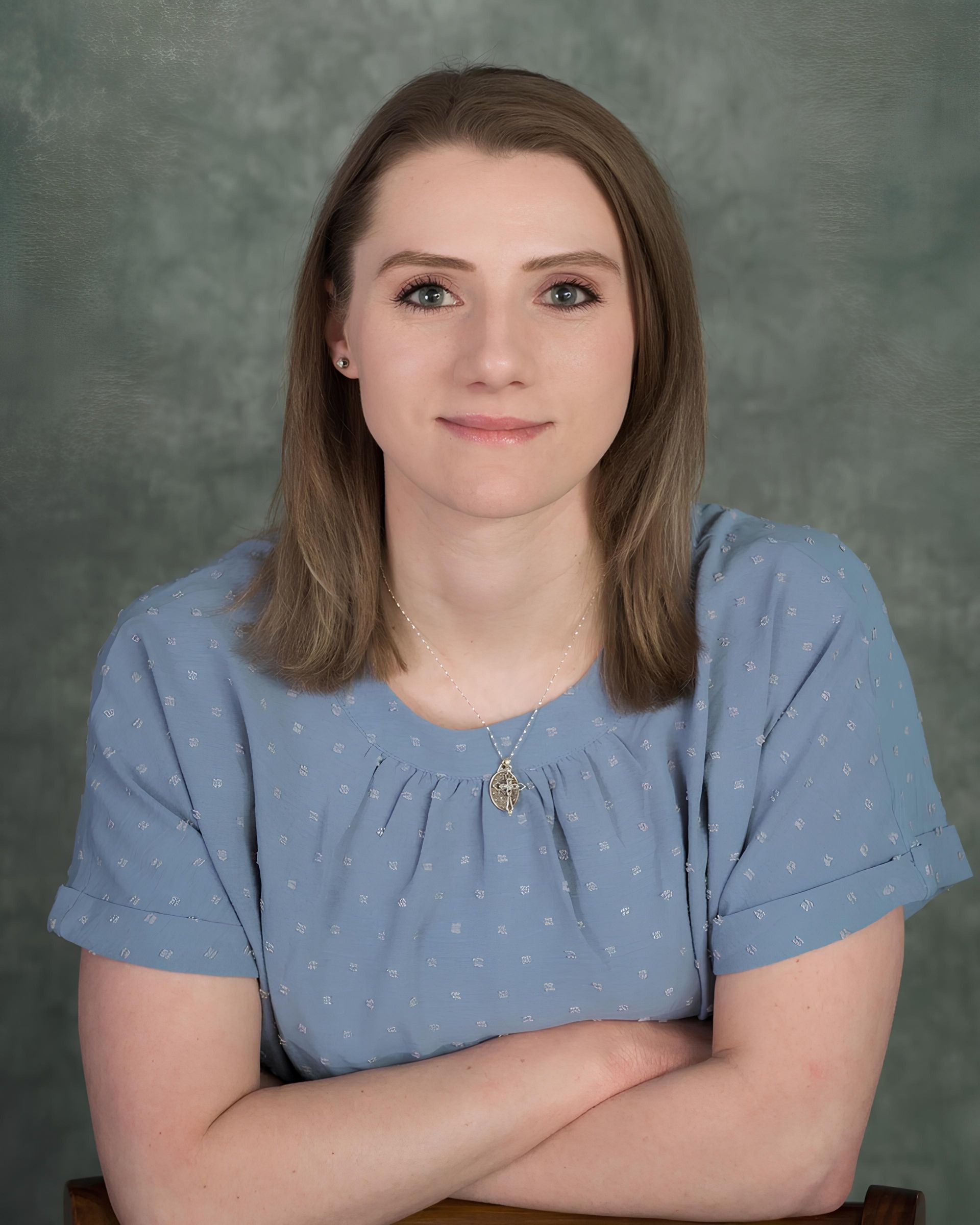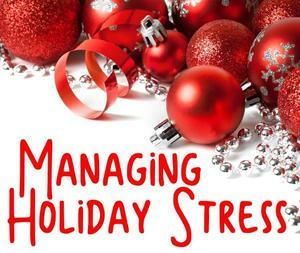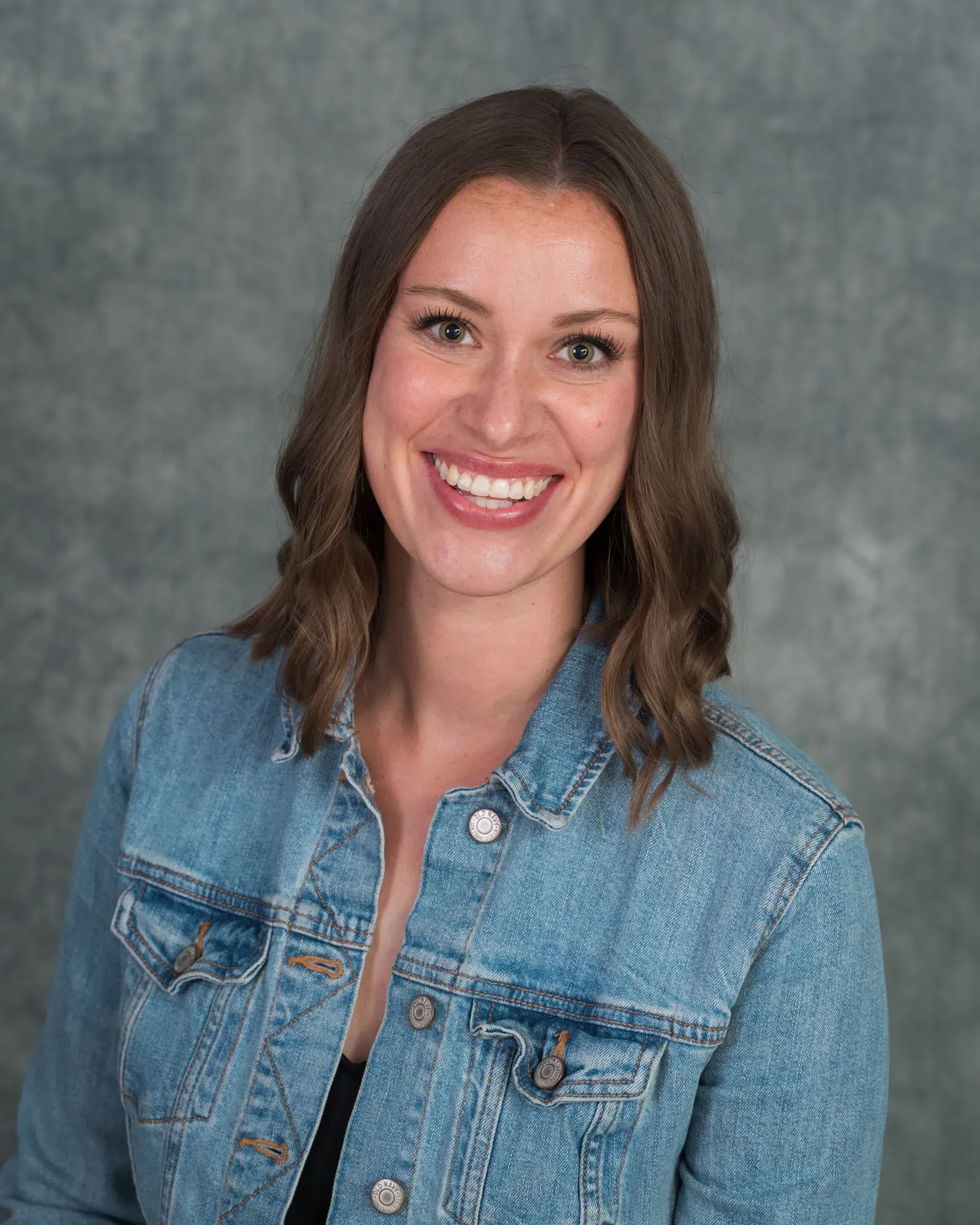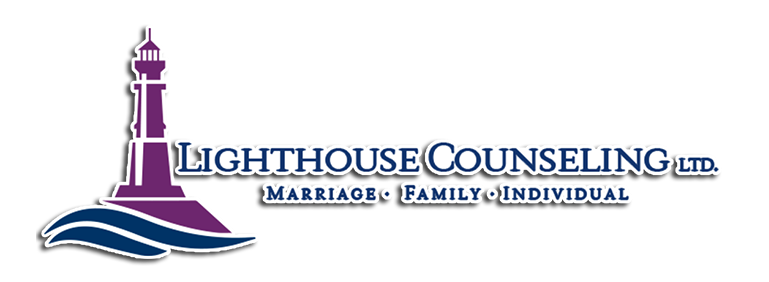Lighthouse Counseling Ltd. Blog

ADHD affects more than just focus—it fundamentally shapes how the brain processes time, organization, and follow-through. One of the most common challenges is time blindness: difficulty accurately estimating how long tasks will take, starting them on time, or smoothly transitioning between activities. To a partner, these struggles can sometimes appear as procrastination, disregard, or lack of effort. In reality, they often stem from an overwhelmed nervous system rather than a lack of care or commitment. Understanding this distinction is key to reducing frustration and building stronger connection.' What Helps in a Relationship 1. Assume good intent. Time management difficulties do not reflect how much your partner values you or the relationship. Reframing challenges as brain-based (rather than character-based) can prevent resentment and open the door to teamwork. 2. Make time visible. Verbal reminders often fade quickly for someone with ADHD. Instead, rely on external, visual tools that work with the brain's wiring: ● Shared digital calendars (with alerts and color-coding) ● Written plans or checklists ● Timers and alarms for transitions These supports reduce the mental load and help everyone stay aligned. 3. Work as a team. Shift from repeated reminders or corrections to collaborative problem-solving. Try gentle, solution-focused questions like: ● “What might make starting this easier next time?” ● “How can we set this up so it feels more manageable for both of us?” This approach fosters partnership rather than criticism. 4. Focus on what matters most. Not every responsibility needs equal urgency. Sit down together to: ● Identify true priorities ● Decide where flexibility is realistic ● Divide tasks based on each person's strengths This creates balance and prevents burnout for both partners. If You Have ADHD Are you wrestling with time blindness or chronic lateness? You're not alone—and you're not broken. With brain-friendly strategies and supportive systems, managing time becomes far more achievable. Therapy can be especially helpful: it reduces shame, strengthens communication, and helps build sustainable routines that actually fit how your brain works. Considering Therapy? If ADHD-related time challenges or relationship tension are affecting your daily life, therapy offers a safe space to explore barriers and create tailored tools. Whether you're seeking individual support to build self-compassion and practical skills, or couples work to navigate dynamics together, you don't have to figure it out in isolation. “Be kind and compassionate to one another, forgiving each other, just as in Christ God forgave you.” — Ephesians 4:32 Supporting a partner with ADHD—or living with it yourself—takes patience, understanding, and teamwork. With empathy and the right strategies, relationships can not only survive these challenges but grow deeper and more resilient.

Forget the fleeting gym memberships and half-hearted diet plans that fizzle out by February. This January, as 2026 unfolds, give yourself the resolution that actually sticks—one with compounding returns for the rest of your life. Prioritize your mental health. In a world that moves faster every year, the weight of constant stress, endless notifications, job insecurity, fractured relationships, lingering past hurts, and the quiet burnout so many feel is heavier than ever. Recent reports show that work negatively impacts mental health for about 1 in 4 employees, while job insecurity alone significantly heightens stress for over half of U.S. workers. Anxiety, depression, and exhaustion aren't just "part of life"—they're signals that your mind deserves care, just like your body does. The payoff? Investing in your mental well-being doesn't just lift your mood—it rewires your entire life. You'll build deeper resilience to handle whatever comes next, forge stronger connections with the people who matter, show up more focused and creative at work, and finally experience what it feels like to live with genuine lightness and clarity. These aren't nice-to-haves; they're game-changers. You Don't Need a Total Life Overhaul—Just Consistent, Kind Steps Start small. Sustainable change happens through gentle, repeatable actions that build momentum: Commit to therapy as your anchor. Even bi-weekly sessions with a skilled therapist can be the difference between merely surviving stress and truly thriving through it. Think of it as regular maintenance for the most important relationship you'll ever have—your relationship with yourself. Carve out space for self-reflection. A few minutes of journaling, guided mindfulness, or simply sitting in stillness each day sharpens self-awareness, helps you name emotions before they overwhelm you, and creates breathing room in a noisy world. Protect your energy with fierce boundaries. Say no to what drains you without apology. Say yes to rest, joy, and people who refill your cup. Boundaries aren't walls—they're gates that let the good in and keep toxicity out. Curate your circle intentionally. Surround yourself with people who cheer your growth, challenge you kindly, and hold space for your real feelings—not just the polished version. This isn't about "fixing" yourself. It's about honoring yourself. 2026 Can Be Your Year of Real Healing and Unstoppable Growth Choosing mental health isn't weakness—it's quiet strength. Whether you're wrestling with anxiety that keeps you awake at night, depression that dulls your colors, patterns you'd rather leave behind, or simply a deep desire to feel more alive and connected, this resolution has the power to transform everything. At Lighthouse Counseling , we offer a warm, confidential, completely judgment-free space where individuals, teens, and couples can unpack what's heavy, discover healthier ways to cope, and step into the version of themselves they've been waiting to meet. If you're ready to stop putting your well-being last—if you want to feel more balanced, more resilient, and more you in 2026—therapy isn't just helpful. It's the most powerful first step you can take. Your future self is already thanking you. 👉 Reach out today. Let's start building the lasting mental wellness you deserve. —your journey doesn't have to wait another year.

What Do We Truly Achieve Through Counseling and Self-Discovery? From my perspective—and drawing on years of experience supporting people through mental health challenges—counseling isn't primarily a place to "fix" problems. It's far more powerful as a dedicated space for self-discovery. Yes, easing symptoms and creating change matters deeply, but the most transformative growth often emerges when we uncover how our past experiences, relationships, and hidden internal patterns shape the way we relate to ourselves and the world around us. The Deeper Roots of Common Struggles Many issues that bring people to therapy—anxiety, burnout, relationship conflicts, or that nagging sense of "feeling stuck"—rarely stand alone. They usually build gradually, intertwined with the coping mechanisms we learned in childhood, our attachment styles, and how we've made sense of difficult emotions over time. Counseling invites us to pause and examine these patterns with gentle curiosity instead of harsh judgment. It's like turning on a soft light in a room we've navigated in the dark for years—suddenly, we see the layout more clearly. Healing Relationships, Inside and Out A core focus of my work is relationships: the ones we have with others and the often-overlooked one we have with ourselves. Our early experiences profoundly influence how safe we feel voicing needs, setting boundaries, or trusting intimacy. Meanwhile, inside, we carry an ongoing inner dialogue that can feel nurturing one day and critical or chaotic the next. Therapy shines a compassionate light on these dynamics, especially when different parts of us feel in conflict—pulled toward safety yet longing for connection, or frozen in indecision. Greater awareness here can unlock profound shifts. Beyond Insight: The Real Engine of Change I firmly believe lasting change requires more than intellectual "aha" moments. Understanding why we react a certain way is valuable, but insight alone rarely brings lasting relief. What truly moves the needle is integrating that understanding emotionally and relationally—feeling it in our bodies, practicing it in real interactions, and building new habits of response. Through counseling, people often cultivate deeper emotional awareness, genuine self-compassion, and the flexibility to choose responses that serve them now, rather than echoing old survival strategies. Becoming More Fully You At its heart, therapy isn't about reinventing yourself into someone entirely new. It's about becoming more authentically and fully you—more attuned to your true needs, core values, and recurring patterns, and more empowered to make choices that align with who you are today. Whether you're seeking personal growth, navigating relationship challenges, or recovering from prolonged stress and burnout, counseling provides a safe, supportive container to explore what's happening beneath the surface—and to gently discover what you might need to move forward with greater ease and wholeness.

The Holiday season is approaching again, and this can bring up many feelings. The holiday season can be a time of joy and connection. Gathering with loved ones, spending extra time with each other. The acts of giving and services, celebrations of faith and traditions, time to rest and reflect, celebrating achievements and milestones and making new memories. It can for some also bring stress, tension, and complicated relationship dynamics towards the forefront. Family gatherings, high expectations, and the pressure to “do it all” might leave us feeling overwhelmed. Feeling as if you want to control everything, but know this is not possible. Therapy can offer a supportive space to explore these challenges, build coping strategies, and maintain emotional balance during the holidays. Understanding the Sources of Holiday Stress Holiday stress often stems from multiple sources: Emotional triggers related to family history or past experiences Grief, loneliness, or unmet expectations Conflicting obligations and social pressures In therapy, you can identify these patterns and understand the root of your stress, rather than just reacting to it. Awareness is the first step toward creating a calmer, more intentional holiday experience. Managing Relationship Dynamics Therapy can helps you Recognize your patterns in family systems Communicate your needs effectively Navigate conflict while maintaining your emotional balance The goal is to respond in ways that honor both your well-being and your relationships. How can we set healthy boundaries while caring for ourselves and find that extra time to care for our loved ones. Gaining Insight and Self-Awareness One of the greatest benefits of therapy is the insight it provides. You may notice patterns in your reactions, understand why certain interactions feel triggering, and gain perspective on longstanding family dynamics. This awareness allows you to approach the holidays with more clarity and less emotional strain. Final Thoughts The holidays don’t have to be overwhelming. Therapy offers a safe space to explore your emotions, develop practical coping strategies, and navigate complex relationship dynamics. With guidance, you can approach this season with greater calm, insight, and resilience — making it more meaningful, manageable and joyful. For those who find strength in faith, remembering that God’s love and grace are constant and can provide comfort and perspective amid the season.

In Minnesota and beyond, countless men have grown up believing that faithful church involvement acts as a shield against life’s toughest battles. Weekly services, biblical teachings, and a supportive faith community are often viewed as unbreakable armor—protecting against addiction, moral slips, and relational breakdowns. But when it comes to sexual addiction—including pornography addiction, infidelity, casual hookups, or compulsive sexual behaviors—the reality paints a far different picture. Research and real-life stories reveal a startling truth: There’s no significant difference in risk for sexual compulsivity between “churched” men and those outside the faith. Sexual addiction in men doesn’t play favorites. “For all have sinned and fall short of the glory of God.” — Romans 3:23 If you’re a Minnesota man grappling with these issues, know that help is available from counselors who specialize in sexual addiction therapy in Minnesota. Let’s debunk the myths and explore the path to true healing. Why the Struggle Hits Equally Hard—Churched or Not Church attendance, doctrinal knowledge, and sincere intentions simply don’t tackle the root causes of addiction: deep-seated shame, loneliness, emotional numbness, and unmet cravings for genuine intimacy and identity. In fact, men from strict religious upbringings—where sexual struggles are hushed, feared, or condemned—often carry intensified shame. This internal battle doesn’t extinguish the addiction; it fuels it. Shame breeds secrecy. The dread of judgment or exposure traps men in silence. Secrecy breeds isolation. And isolation is fertile ground for addiction to thrive. Isolation destroys intimacy. The deep connection your heart yearns for slips further away. “Therefore confess your sins to one another and pray for one another, that you may be healed.” — James 5:16 Bible memorization, daily prayers, or Sunday pew-sitting doesn’t change the core pain. Whether you’re a lifelong churchgoer or haven’t stepped foot in one for years, the drivers of compulsive sexual behavior remain universal. What Minnesota Research Reveals About Religiosity and Sexual Addiction Extensive studies on hypersexual disorder and pornography addiction challenge the protective myth of faith: In assessments of men with hypersexual disorder, religiosity showed no correlation with hypersexuality levels (via tools like the Hypersexual Behavior Inventory and Consequences Scale). A study of internet pornography users (350 religious vs. 114 non-religious) found religious men viewed porn less often but reported higher sexual compulsivity (20.8% vs. 12.3%). Additional research indicates strong religious beliefs predict greater self-perceived porn addiction, even at identical usage rates. The takeaway? Being “churched” offers no inherent safeguard against sexual addiction in men. For some, the clash between faith and behavior heightens distress and moral conflict, intensifying the cycle. “The spirit indeed is willing, but the flesh is weak.” — Matthew 26:41 How Untreated Sexual Addiction Stunts a Man’s Growth Left unaddressed, sexual compulsivity doesn’t stay confined to private moments—it erodes every facet of life, limiting potential in Minnesota homes, workplaces, and communities. Emotional Maturity Freezes in Place Addiction halts growth at the age self-soothing began with sex or fantasy. Men become emotionally distant, struggling to connect, empathize, or handle stress without escape. “When I was a child, I talked like a child, I thought like a child, I reasoned like a child. When I became a man, I put the ways of childhood behind me.” — 1 Corinthians 13:11 Leadership Crumbles Without Integrity True leadership—in marriage, career, community, or ministry—requires alignment between inner truth and outer actions. A hidden double life shatters that foundation. “Whoever walks in integrity walks securely, but whoever takes crooked paths will be found out.” — Proverbs 10:9 Relationships Remain Shallow and Performative Craving closeness but fearing vulnerability, addicted men settle for surface-level bonds. Romantic, spiritual, and professional ties never deepen beyond image. “Love must be sincere. Hate what is evil; cling to what is good.” — Romans 12:9 Purpose and Passion Fade Away The mental energy drained by guilt, secrecy, and compulsion leaves little for vision or calling. “No one can serve two masters… You cannot serve both God and money.” — Matthew 6:24 (Replace “money” with “lust”—the false master enslaving many.) Breaking Free: Healing Beyond “Trying Harder” Recovery from porn addiction, infidelity, or compulsive hookups isn’t about increased spirituality or willpower. It’s about addressing the wounds beneath. Key steps include: ● Confronting shame with honesty and self-compassion. ● Establishing safe, accountable support networks. ● Mastering emotional regulation techniques. ● Rediscovering authentic identity—free from performance. Many churched men mistake religious busyness for transformation. True change comes when grace reshapes the heart. “Do not conform to the pattern of this world, but be transformed by the renewing of your mind.” — Romans 12:2 The Hopeful Truth for Minnesota Men Sexual addiction steals intimacy, purpose, and leadership potential from any man—regardless of church background. But recovery is equally accessible to all. Choose honesty over facade, vulnerability over solitude, and growth over guilt. Reclaim emotional depth, healthy relationships, and authentic influence. “It is for freedom that Christ has set us free.” — Galatians 5:1 Freedom starts not in the pew, but in a courageous heart ready for truth and healing. Ready for Sexual Addiction Counseling in Minnesota? If pornography addiction , affairs, hookups, or compulsivity resonate with your story, you don’t have to face it alone. As a leading sexual addiction therapist in Minnesota, Jake Tastad offers compassionate, expert guidance tailored to men from all walks—including faith communities. We’ll uncover roots, build practical tools, and awaken the leader within. Schedule your confidential session today and step into lasting freedom. Professional counseling for sexual addiction in Minnesota is just one click away.

Sex. It’s everywhere—advertising, social media, TV shows, movies, and, of course, the internet. For Christian men, navigating our sexual integrity in this culture is not just a challenge—it’s often a battle. But how do you know when it crosses a line? When does “being visual” or “just having a high libido” turn into something more serious? At some point, many men find themselves asking: “Am I a sex addict?” If that question makes you uncomfortable, you’re not alone. Many men wrestle with sexual struggles in silence, guilt, and shame. But the truth is, freedom starts with honesty. Common Excuses That Hide a Deeper Issue One of the first signs of sexual addiction isn’t just the behavior—it’s the excuses we use to justify it. Here are a few we hear often in counseling: “I just have a higher libido than most guys.” While libido varies from person to person, using this as a reason to watch porn daily, visit strip clubs, or engage in risky sexual behavior may be masking a deeper issue. “At least I’m not cheating. You should see what other guys are doing.” If you're constantly escaping into porn, chat rooms, or emotional affairs, you're still stepping outside the bounds of faithfulness—even if there’s no physical infidelity. “I can stop anytime I want.” But you haven’t. And when you try, the withdrawal, irritability, or relapse cycle keeps pulling you back in. “It’s not hurting anyone.” Sexual addiction often leads to broken trust, isolation, spiritual numbness, and even damage to marriages and families. Excuses don’t lead to healing. But truth does. Is It Addiction or Just a Struggle? Sexual addiction isn’t just about frequency—it’s about compulsivity. When sexual behaviors start to control you, interfere with your relationships, impact your spiritual life, or go against your values, it may be more than just a "struggle." Here are a few questions to consider: Do I feel powerless to stop my sexual behaviors, even when I want to? Have I tried to quit before but found myself going back? Do I keep secrets from my spouse, friends, or church community? Have my sexual habits escalated over time (more graphic content, riskier behavior)? Do I use sex or porn to cope with stress, boredom, or emotional pain? If you answered yes to several of these, it’s time to take a deeper look. Take the Sexual Addiction Screening Test (SAST) Developed by Dr. Patrick Carnes, a pioneer in the field of sexual addiction recovery, the Sexual Addiction Screening Test (SAST) is a confidential, validated tool used by professionals around the world. It helps you evaluate whether your behaviors align with patterns of sexual addiction. You can take the test online here: https://psychology-tools.com/test/sast It only takes a few minutes, and it could be the first real step toward healing. There Is Hope. You’re Not Alone. Sexual addiction thrives in secrecy. But healing begins in community. At Lighthouse Counseling, we provide confidential, grace-filled counseling for men struggling with compulsive sexual behaviors. Whether you're dealing with porn addiction, infidelity, or other sexual strongholds, we’re here to walk with you. We also encourage finding a support group , such as: ● Pure Desire (puredesire.org) ● Sex Addicts Anonymous (SAA) ● Celebrate Recovery These communities offer encouragement, accountability, and the powerful reminder that you are not the only one fighting this battle—and you don’t have to fight it alone. Next Steps If you’re wondering whether your struggle with sex has become an addiction, don’t ignore that inner nudge. Take the SAST. Pray. Reach out. There is no shame in needing help. But there is freedom in seeking it. Let us walk with you toward healing, redemption, and restored integrity. Contact us today to schedule a confidential session. You are not your addiction. You are a beloved son of God, called to live in truth and freedom. Need help now? Schedule a confidential session with a Christian counselor who understands sexual addiction.

At Lighthouse Counseling LTD in Minnesota, we believe in the transformative power of routines to enhance mental health, boost confidence, and foster personal growth. Incorporating healthy routines into your daily life can create structure, reduce stress, and promote a sense of control. Let’s explore why routines matter and how they can positively impact your emotional, psychological, and spiritual well-being. Why Routines Matter for Mental Health Routines are often overlooked, yet they are a powerful tool for improving mental health and personal development. A simple habit, like making your bed each morning, may seem insignificant, but it sets the tone for a productive day. As one of the first tasks you complete, it provides a small sense of accomplishment that can spark a cycle of positive behaviors. This small act can boost confidence, enhance your mindset, and create momentum for tackling larger goals. Research shows that routines provide structure and predictability, which are essential for reducing stress and anxiety. When life feels chaotic, a consistent routine—whether it’s making your bed, practicing mindfulness, or planning your day—offers a sense of control. At Lighthouse Counseling LTD, our Minnesota-based therapists help clients build personalized routines to support mental wellness and emotional balance. The Impact of Healthy vs. Unhealthy Routines Not all routines are created equal. Healthy routines, such as preparing for the next day, engaging in self-care, or spending quality time with loved ones, can be transformative. These habits promote relaxation, productivity, and meaningful connections. Conversely, unhealthy routines—like excessive social media scrolling, procrastination, or neglecting self-care—can hinder personal growth and mental health. For example, an evening routine centered on self-care, such as journaling or reading, can prepare you for restful sleep and a productive tomorrow. On the other hand, spending hours on social media may increase stress and disrupt your mental clarity. By identifying and replacing unhelpful habits with intentional routines, you can create a positive ripple effect in your life. How Routines Enhance Mental Health and Confidence Routines are a cornerstone of mental health because they: Reduce Stress: Consistent habits eliminate the need for constant decision-making, freeing up mental energy and reducing overwhelm. Boost Confidence: Completing small tasks, like making your bed or exercising, builds a sense of accomplishment that carries into other areas of life. Create Predictability: A structured routine fosters stability, which is especially grounding during challenging times. Promote Focus: Routines help you prioritize goals, whether they’re related to self-care, work, or relationships. At Lighthouse Counseling LTD, our Minnesota counselors work with clients to develop routines tailored to their unique needs, helping them achieve emotional and psychological balance. Building Routines Around Key Areas of Life Routines can be applied to various aspects of life, including: Self-Care: Incorporate activities like exercise, meditation, or skincare to prioritize your well-being. Household Tasks: Simple habits like meal planning or tidying up can create a sense of order and accomplishment. Relationships: Schedule time for meaningful connections with family or friends to strengthen bonds. Spiritual Practices: Daily prayer, gratitude, or reflection can nurture your spiritual growth. For instance, a morning routine that includes prayer, a short walk, and planning your day can set a positive tone. Similarly, an evening routine of journaling and relaxation can help you unwind and prepare for restful sleep. The Spiritual Power of Routines For those who draw inspiration from faith, the Bible offers timeless wisdom about the value of routines. Consider these verses: Matthew 6:6 encourages daily prayer and devotion, reminding us that consistent spiritual practices bring us closer to God. Proverbs 12:11 highlights how routine work and integrity lead to abundance and fulfillment. Exodus 20:8-10 emphasizes the importance of rest to achieve balance and honor the Sabbath. Philippians 2:4 inspires us to serve others, fostering kindness and connection through intentional habits. Psalm 118:24 reminds us to approach each day with gratitude, cultivating a positive outlook. By incorporating these principles into your routines, you can nurture both your mental health and spiritual well-being. Start Small, Transform Big The beauty of routines lies in their simplicity. You don’t need to overhaul your life to see results. Start with small, achievable habits—like making your bed, practicing gratitude, or taking a 10-minute walk. These small actions can lead to significant emotional, psychological, physical, and relational benefits. At Lighthouse Counseling LTD in Minnesota, we’re here to support you in creating meaningful routines that align with your goals. Our experienced therapists offer personalized counseling to help you reduce stress, build confidence, and foster personal growth through intentional habits. Take the First Step Toward Positive Change Ready to harness the power of routines to improve your mental health and well-being? Contact Lighthouse Counseling LTD today to schedule a session with one of our compassionate Minnesota therapists. Let us help you create routines that transform your life—one small step at a time.

Life is full of seasons, and some feel like stormy, uncertain chapters. A job loss, a shifting relationship, or a delayed dream can leave you questioning, “What’s wrong with me? Why can’t I keep it all together?” At Lighthouse Counseling LTD , with locations across Minnesota, I want to remind you of a powerful truth: You’re not broken—you’re becoming. Understanding the Stress of Life Transitions From a clinical perspective, transitions—whether planned or unexpected—can activate your brain’s stress response system. Your nervous system thrives on predictability, so when routines, roles, or relationships change, it’s normal to experience anxiety, irritability, or even depressive symptoms. This discomfort isn’t a sign of failure; it’s your brain and body adapting to new circumstances. At Lighthouse Counseling LTD, our experienced therapists in Minnesota help you navigate these changes with evidence-based approaches. As a Licensed Professional Clinical Counselor (LPCC), I’ve seen how transitions can feel overwhelming but also serve as opportunities for growth, self-discovery, and resilience. Reframing Your Journey with Therapy Therapy isn’t about “fixing” you—it’s about empowering you to reconnect with your inner strength and move forward with clarity and intention. Our counselors use proven therapeutic approaches to guide you through life’s transitions, including: Narrative Therapy: Reframe your story to focus on your resilience and potential, not your struggles. Cognitive Behavioral Therapy (CBT): Identify and challenge unhelpful thought patterns to build healthier coping strategies. Values-Based Reflection: Clarify what matters most to you, whether it’s faith, family, creativity, or community, to guide your next steps. In our sessions, we explore meaningful questions to help you gain clarity: What beliefs about yourself are being challenged by this transition? What coping strategies have supported you in the past? What values will anchor you in this new chapter? Our goal is to create a safe, supportive space where you feel seen, heard, and empowered to embrace your evolving self. Personalized Healing for Your Unique Journey At Lighthouse Counseling LTD, we believe healing is not one-size-fits-all. Whether you find strength in mindfulness practices, creative expression, spiritual faith, or community connections, our therapists tailor sessions to your unique needs. With multiple locations across Minnesota, including Huthcinson, Waconia, Willmar, Litchfield, Sauk Rapids, and Shakopee, we’re here to support individuals, couples, and families facing life’s challenges. Our counseling services are designed to help you: Build resilience during times of uncertainty. Develop practical tools to manage stress and anxiety. Rediscover your purpose and direction. Why Choose Lighthouse Counseling LTD? With a team of compassionate, licensed therapists across Minnesota, Lighthouse Counseling LTD is committed to walking alongside you during life’s transitions. Whether you’re grieving a loss, navigating a career change, or seeking clarity in your relationships, our personalized approach helps you move forward with confidence. As Ashley Brinkman, LPCC, I’m dedicated to helping you find your path forward with empathy and expertise. We offer both in-person and telehealth counseling services, making it easy to access support from anywhere in Minnesota. Our flexible scheduling and welcoming environment ensure you can find the care you need, when you need it. Take the Next Step Toward Becoming If you’re in a season of transition, you don’t have to navigate it alone. At Lighthouse Counseling LTD , we’re here to help you rediscover your strength, clarify your values, and embrace the person you’re becoming. Contact us today to schedule a session at one of our Minnesota locations or explore our telehealth options. Ready to start your journey? Reach out to Lighthouse Counseling LTD at 855-454-2463 or visit our website at www.lighthousecounseling.com to learn more about our services and book an appointment. Let’s walk this path together.

At Lighthouse Counseling, LTD, we are thrilled to introduce Abbe Dufault , our newest intern, to our Waconia, MN location. Abbe brings a fresh perspective, a compassionate heart, and a dedication to helping individuals navigate their mental health journeys. Her addition strengthens our mission to provide a safe, supportive, and nonjudgmental environment for clients seeking counseling in Waconia and the surrounding areas. Meet Abbe Dufault, Counseling Intern Abbe earned her bachelor’s degree i n psychology from Crown College and is currently pursuing her master’s degree in counseling at the same institution. With a deep commitment to serving her community, Abbe is excited to intern at Lighthouse Counseling, where she can support individuals, families, and couples in achieving emotional and psychological wellness. Abbe’s passion lies in helping clients facing anxiety, depression, and life transitions. She believes everyone has the potential for growth and healing, and she is dedicated to fostering a warm, empathetic space where clients feel truly seen and heard. Her counseling approach is grounded in person-centered therapy and narrative therapy , emphasizing each individual’s unique life story, strengths, and goals. Whether you’re navigating a major life change, struggling with anxiety, or seeking support for depression, Abbe is here to walk alongside you with authenticity and care. Her goal is to empower clients to embrace their true selves and overcome challenges in a safe, nonjudgmental environment. Why Choose Lighthouse Counseling in Waconia, MN? Located in the heart of Waconia, MN, Lighthouse Counseling, LTD is a trusted resource for mental health support in Carver County and beyond. Our team of experienced therapists and interns, including Abbe, offers a wide range of services tailored to meet the unique needs of individuals, couples, and families. We specialize in addressing: Anxiety and Depression: Helping clients manage overwhelming emotions and build coping strategies. Life Transitions: Supporting individuals through major changes, such as career shifts, relationship changes, or personal growth. Couples and Family Counseling: Strengthening relationships and fostering healthy communication. Trauma and Grief: Providing a safe space to process loss and heal from past experiences. Our Waconia location is home to a diverse team of professionals, including Larry Bengtson, MSE, LPCC , the founder of Lighthouse Counseling, who specializes in marriage and couples counseling, and Tomasina Uttecht , another talented intern with a focus on children’s behavioral health and family systems. Together, our team is committed to holistic, evidence-based care that nurtures the emotional, psychological, and spiritual well-being of our clients. What Sets Abbe Apart? Abbe’s approach to counseling is both compassionate and structured, blending empathy with a focus on actionable growth. Her use of narrative therapy allows clients to reframe their experiences and discover new perspectives, while her person-centered approach ensures that every session is tailored to the client’s unique needs. Whether you’re seeking support for mental health challenges or guidance through a life transition, Abbe is dedicated to helping you achieve your goals. As a Waconia native, Abbe is deeply connected to the community and understands the unique challenges faced by residents in the area. Her local roots and commitment to mental health make her a valuable addition to our team. Schedule an Appointment with Abbe Dufault Today We invite you to connect with Abbe Dufault at our Waconia, MN counseling center. Whether you’re seeking individual therapy, couples counseling, or support for life transitions, Abbe is ready to provide compassionate, personalized care. At Lighthouse Counseling, we believe in empowering our clients to thrive, and Abbe’s warm and empathetic approach is a perfect fit for this mission. To schedule an appointment with Abbe or any of our skilled therapists, contact Lighthouse Counseling, LTD today. You can reach us through our website or by calling our Waconia office. Let us help you take the first step toward healing and growth. Contact Us Lighthouse Counseling, LTD Waconia, MN Request an Appointment | Contact Counselor

Lighthouse Counseling is excited to announce the newest addition to our team, Carrie McCann, Mental Health Practitioner , a highly skilled counselor bringing expertise and empathy to our Hutchinson, MN location. With a master's degree in Clinical Mental Health Counseling from Liberty University, Carrie is passionate about supporting individuals, couples, and families on their path to change and growth. A Compassionate Approach to Therapy Carrie integrates various therapeutic methods tailored to her clients' needs, with a strong emphasis on Cognitive Behavioral Therapy (CBT) as a starting point. She is also trained in Attachment-Based Family Therapy (ABFT) , ideal for families aiming to resolve conflicts and improve communication. Whether you're new to therapy or looking to restart your journey, Carrie provides a judgment-free, empathetic environment to help you thrive. Areas of Specialty Relational Issues: Marriage and family counseling Complex Trauma: Emotional, verbal, and psychological abuse Anxiety and Depression Spirituality Life Adjustments Career Challenges Grief Carrie offers flexible scheduling with in-person sessions at our Hutchinson, MN office and telehealth options to accommodate your needs. About Carrie In her free time, Carrie loves spending time with her husband and three kids, reading, enjoying Minnesota summers on the lake, pursuing laughter, and savoring dark chocolate. Her personal interests reflect her warm and approachable nature, which she brings into every counseling session. Join Us in Welcoming Carrie! We are thrilled to have Carrie McCann join Lighthouse Counseling. If you're searching for a counselor in Hutchinson, MN, or need telehealth support, contact us today to schedule a session with Carrie and start your journey toward health, peace, and joy.


Share On: